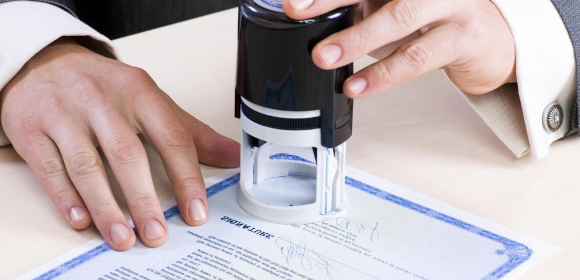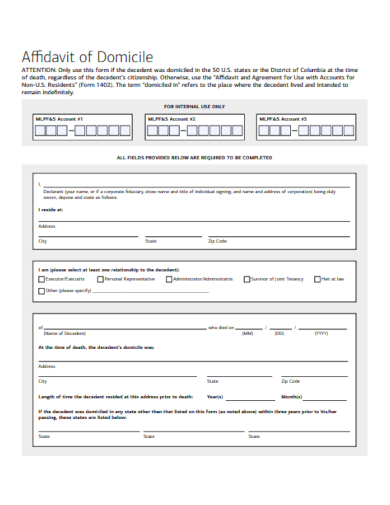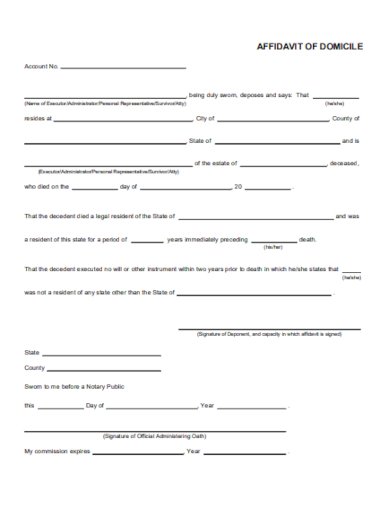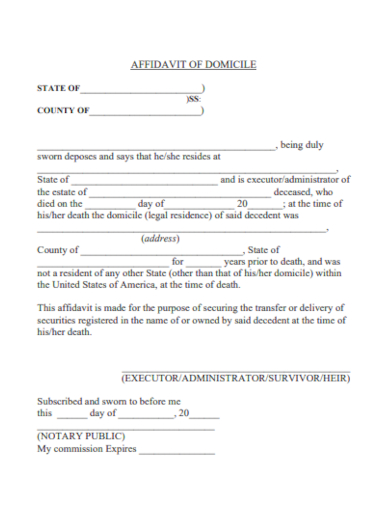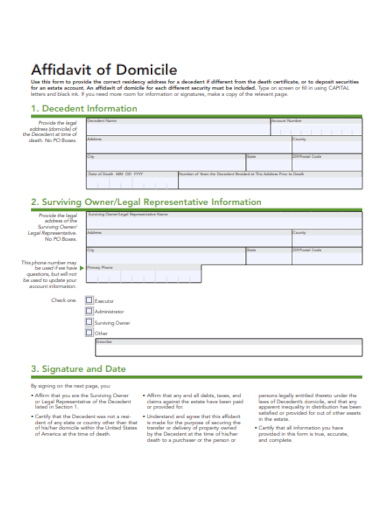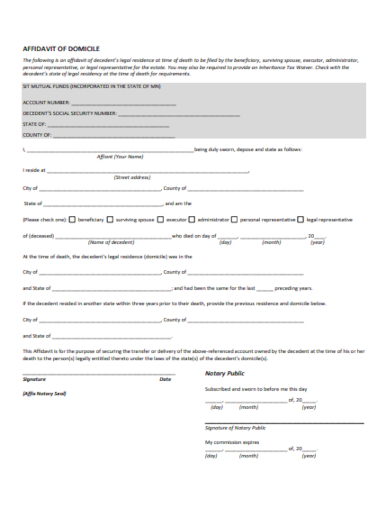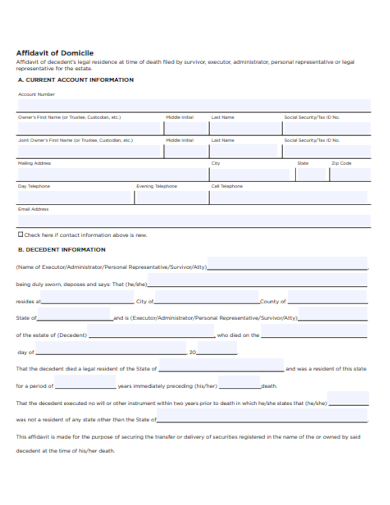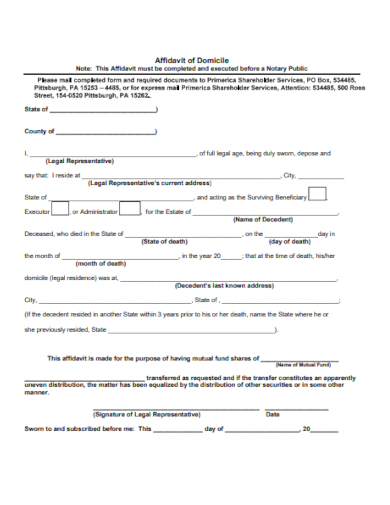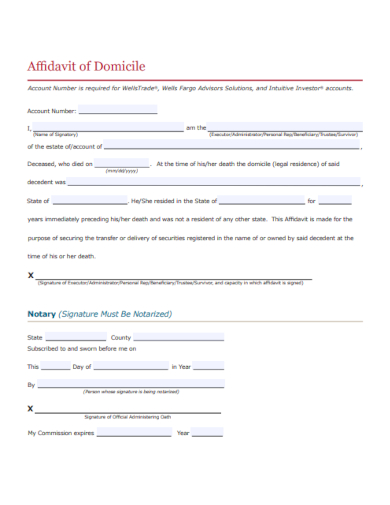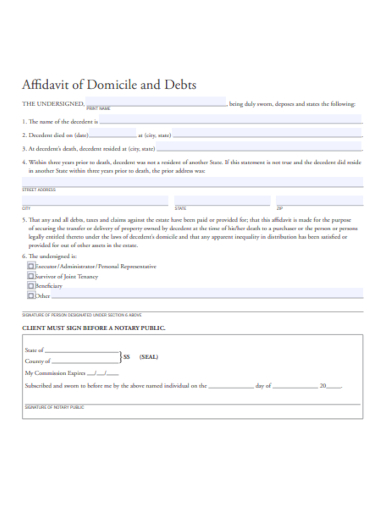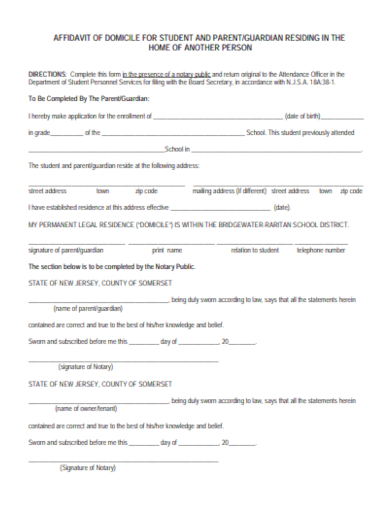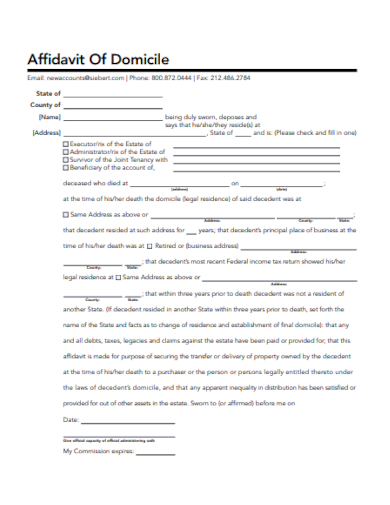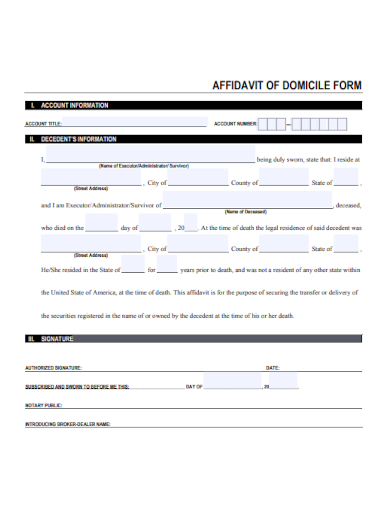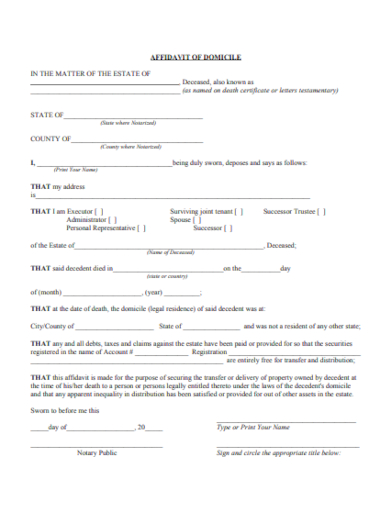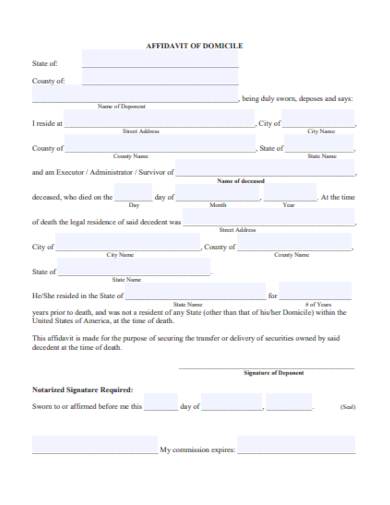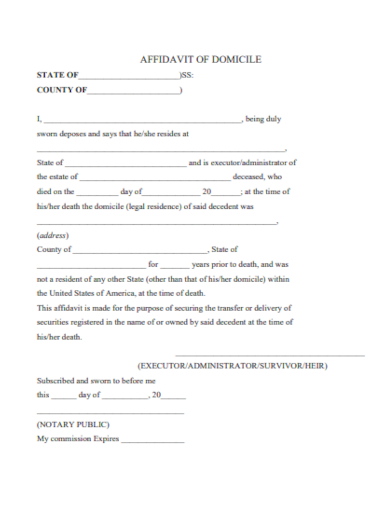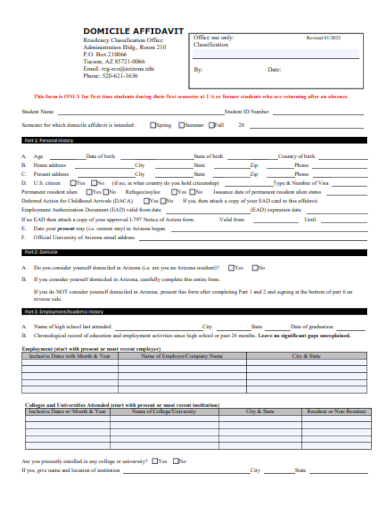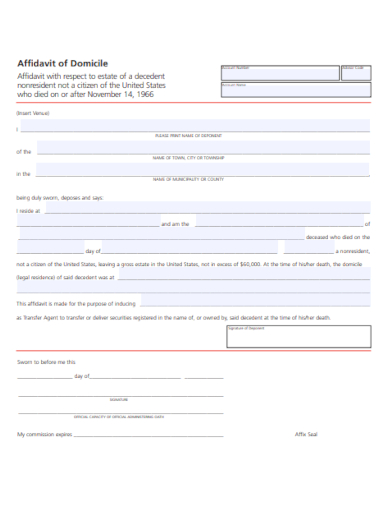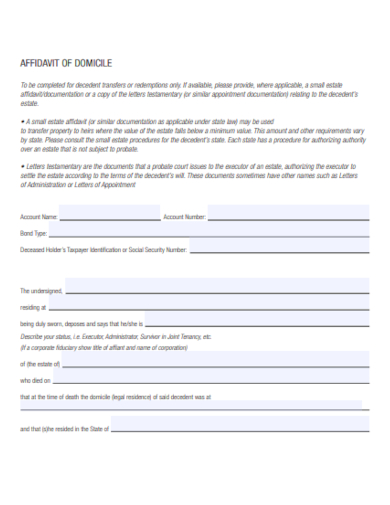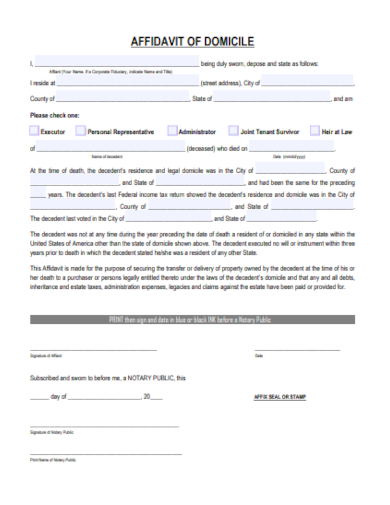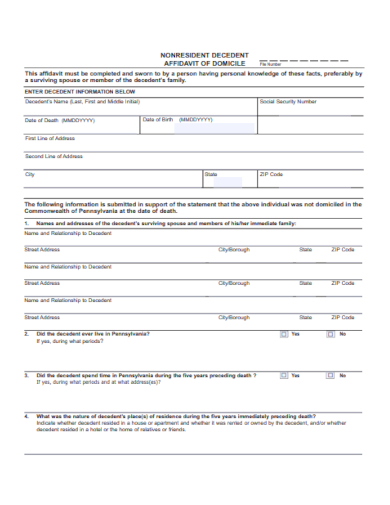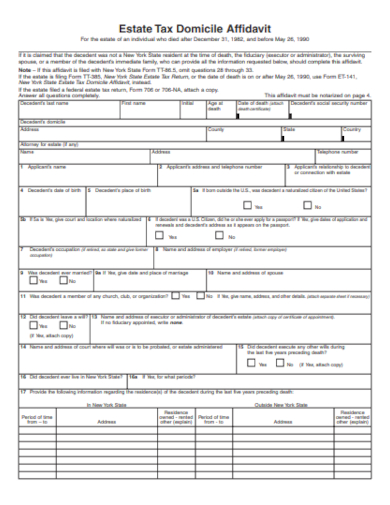To establish the primary place of residence of someone who passed away, an affidavit of domicile or notarized domicile affidavit is filed or submitted. This is a legal document that is written and sworn by the executor of the decedent’s estate and is also a necessary document to enable financial brokers to transfer the securities of the ownership from the decedent to their beneficiaries. An affidavit of domicile is different from an affidavit of heirship as it transfers the decedent’s properties to their heirs who are usually close family members.
20+ Affidavit of Domicile Samples
1. Affidavit of Domicile Template
2. Affidavit of Domicile Form
3. General Affidavit of Domicile
4. Affidavit of Domicile Format
5. Sample Affidavit of Domicile
6. Standard Affidavit of Domicile
7. Printable Affidavit of Domicile
8. Notary Affidavit of Domicile
9. Affidavit of Domicile and Debts
10. Affidavit of Domicile for Student
11. Simple Affidavit of Domicile
12. Sample Affidavit of Domicile Form
13. Probate Affidavit of Domicile
14. Editable Affidavit of Domicile
15. Shareholder Affidavit of Domicile
16. Domicile Affidavit Template
17. Basic Affidavit of Domicile
18. Small Estate Affidavit of Domicile
19. Formal Affidavit of Domicile
20. Decedent Affidavit of Domicile
21. Estate Tax Domicile Affidavit
What is an Affidavit of Domicile?
An affidavit of domicile is a legal and formal document that legally verifies the address of the residence where a deceased person used to own and live. After they passed away, their relatives might need to establish the decedent’s primary place of residence to pass it to their inheritors and undergo the probate process. Other types of affidavit letters that a person can write and use are the affidavit of guardianship, affidavit of relationship, affidavit of self-adjudication, affidavit of support letter, and affidavit of confirmation.
How to Write an Affidavit of Domicile
When a person passes away, their relative will most likely file an affidavit of domicile which is a legal document or a formal letter used in probate court, aiming to help proper distribution of the decedent’s property to their heirs. To be considered legally valid, this affidavit requires that the individual who signed it swears to the best of their knowledge the accuracy of the information they are providing.
Step 1: Provide the Decedent’s Information
Start writing the affidavit of domicile with the basic information about the decedent including their place of residence. When the decedent had lived in a single place for a long period of time, the place will be considered their domicile. However, it will be a challenge to determine their domicile if the decedent has traveled a lot, had more than one home before their death, or was mentally incompetent.
Step 2: Provide the Affiant’s Information
The term ‘affiant’ refers to the individual who signed the affidavit form and swore that the decedent was indeed the residence’s occupant at the time of their death which is the address indicated in the legal document. This affiant can be an executor, administrator, or a personal representative.
Step 3: Determine the Location of Stocks and Bonds
In this section, you have the option to be specific on the location of the deceased stocks and bonds at the time of their passing. This section is optional and written to help the probate court in identifying the appropriate law to apply when distributing these assets.
Step 4: Start Executing the Affidavit of Domicile
Once you have filed the document, the affiant is required to sign and date the affidavit which must be witnessed by a notary who will sign in acknowledgment at the bottom of the affidavit of domicile. While most jurisdictions do not require it, it is recommended that the affidavit is witnessed by a notary to ensure its validity.
FAQs
What are the common terms used in an affidavit of domicile?
The common terms you will encounter when filing an affidavit of domicile are deceased, estate, the executor of the estate, beneficiaries, probate court, jurisdiction, domicile, estate account, stocks and securities, financial broker, and the instructions for the transfer.
What are the common purposes of an affidavit of domicile?
An affidavit of domicile is commonly used to transfer securities in which the state’s estate will be determined as well as the inheritance taxes to be assessed against these assets. The document is also used as a requirement for each security account of the decedent.
What is the disadvantage of not filing an affidavit of domicile?
Without an affidavit of domicile, there will be difficulties in the transferring process of the assets, delay in estate administration, and potential disputes among heirs or beneficiaries.
An affidavit of domicile is a document that is sometimes written in a formal letter format and is witnessed by a notary to ensure its authenticity or validity and is sworn by an affiant that the address indicated in the document is indeed the primary place of residence of the decedent at the time of their death. An executor or affiant who signed this document swears in writing that the information provided in the affidavit is accurate and true to the best of their knowledge.
Related Posts
FREE 10+ Affidavit of Execution Samples in PDF
FREE 10+ Affidavit of Business Closure Samples [ Temporary ...
FREE 10+ Affidavit of Acceptance Samples [ Service, Knowledge ...
FREE 10+ Affidavit of Authorization Samples [ Health, Claim, Work ]
FREE 6+ Affidavit of Single Status Samples in PDF MS Word
FREE 3+ Affidavit of Adverse Claim Samples in PDF DOC
FREE 3+ Affidavit of Basic Needs Samples in PDF DOC
FREE 10+ Affidavit of Consent Samples [ Parental, Marital, Support ]
FREE 10+ Affidavit of Incident Report Samples in PDF DOC
FREE 10+ Affidavit of Waiver Samples [ Interest, Rights, Inheritance ]
FREE 10+ Affidavit of Declaration Samples [ Income, Ownership ...
FREE 10+ Affidavit of Agreement Samples [ Purchase, Payment ...
FREE 13+ Sample Affidavit in MS Word PDF
FREE 10+ Affidavit of Acknowledgement Samples [ Paternity ...
FREE 10+ Affidavit of Accident Samples [ Driver, Vehicle, Car ]
